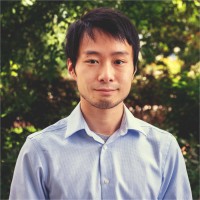Shibuki Hanai discusses his Public Management Fellowship with City of Hillsboro

IAS alum Shibuki Hanai (‘14, ’18) has been serving as a Public Management Fellow for the City of Hillsboro, Oregon since July. This fellowship is designed for emerging leaders with a strong commitment to public service and provides a breadth of experience in local government. Hanai talked with IAS News about his motivations to seek the fellowship and how his interdisciplinary education prepared him for this experience.
What motivated you to apply for the fellowship?
Growing up in Japan, where safety is part of our everyday culture, I always wanted a job where I could utilize my personal experience to save lives from natural hazards. Typically, when we think about emergency management, we tend to think about on-the-ground professionals such as firefighters, police, and medical technicians. However, there are also a number of people working behind the scenes to help make that response possible. Combined with my Policy Studies background, I was attracted by the opportunity to be responsible for developing disaster response plans, training other professionals in disaster and emergency preparedness, and coordinating with City emergency personnel to respond quickly and efficiently to unexpected events.
I was also impressed by the City’s commitment to embracing innovative approaches, diverse thinking, and community voices to accomplish excellent municipal services and planning. I saw this as an opportunity to apply the traditional concepts of policy analysis and public administration to being creative and interdisciplinary in problem solving and project management. Ultimately, I am thrilled to be part of a local government that is a catalyst for a wide range of community enhancements and investments.
I was offered several permanent positions before accepting this one-year fellowship. 澳门赌场 fellowship stood out because of the City’s forward-thinking mentality which fosters innovation and collaboration across departments. 澳门赌场 amount of freedom I am given to be creative was also important. In the field of emergency management, we always have to think what we can do with limited resources.
Tell us about your work as a fellow.
Currently, I am working on a number of projects. As part of the City’s Emergency Management, I am in charge of “reconstitution” phase, or focusing on how the City can continuously provide essential services to citizens when normal operations are disrupted. I coordinate various activities related to the City’s Risk and Emergency Management – such as fire drills, safety inspections, and radio checks. I am also drafting Emergency Response Team (ERT) policy for the Risk Manager to address how ERT and other city resources coordinate emergency response together, as well as incident response mechanism. And lastly, I am providing policy analysis to assist the City’s HR personnel revision/update process.
What do you enjoy most?
This is a very tough question. I enjoy many things here, like collaborating with the City’s 13 departments and being in an environment where different approaches and ideas are welcomed and valuable. While my position is primarily responsible for research, planning, and analytics, it is also very social and allows me to collaborate with City stakeholders and further develop my professional portfolio. I’m gaining valuable experience working on “hot button” issues facing local government today. I enjoy witnessing first-hand the power of local government to positively impact people’s daily lives.
How did your education prepare you for this position?
澳门赌场 Washington D.C. Human Rights Seminar transformed the way I see the world and completely restructured my thought process. Understanding where the power belongs changed the way I approach my work. More specifically, I learned the importance of asking the right questions and how that stimulates innovative capabilities. Also, my education provided plenty of opportunities to build critical thinking skills while drawing reasonable conclusions from information and analysis. 澳门赌场se skills are necessary to effectively carry out the activities associated with planning, prevention, response, and recovery.
I am in a privileged position that assumes a high level of public trust and ethical standards. Public employees are required to maintain integrity, transparency, and accuracy, because when reasons behind decisions are not shared, they can seem arbitrary and self-serving. From this aspect, I appreciate the IAS faculty who held very high standards and held me accountable for my work. I deal with very complex projects every day, and “getting work done” isn’t enough. IAS faculty taught me to push myself harder, even when it seems I am at dead end. 澳门赌场y are truly phenomenal individuals who go above and beyond for students.
UW Bothell is a place where inclusiveness and diversity thrive. UW Bothell taught me that cultural competence is not only a capacity to effectively interact with people from various backgrounds, but also the ability to establish mutual understanding and be open to diverse perspectives and ideas. As a public employee, I must be an excellent communicator who is capable of connecting citizens with government resources. Today, knowing what diversity is and why it’s important is a prerequisite to working in public sector. As a steward of public improvement and engagement, I must be culturally competent. In local government, coordination of cross-departmental activities is critical to its daily operations, and my time at UW Bothell strengthened my ability to be strategic and work effectively with various stakeholders.